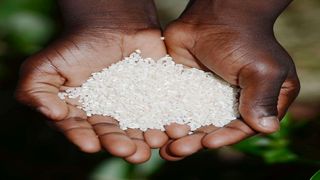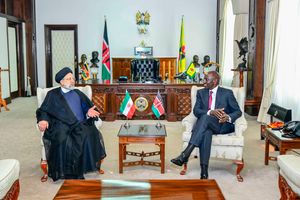
On August 31 last year, as the country was glued to the Supreme Court hearing into the presidential election petition, authorities were busting a sinister food consignment – counterfeit rice. But days later, the fake rice was released into the market.
|Our Columnists
Premium
When fight over a trademark shouldn’t be front-page news
Nick Mwenda says he was disappointed by last Friday’s Daily Nation headline, “How State officials fed you bogus rice”. He says he can’t find anything that makes the rice bogus as foodstuff.
“Does copyright infringement by a trader warrant that alarming headline?” he asks.
The headline is about a fight over a trademark (intellectual property) violation. Capwell Industries Limited, complains to the Anti-Counterfeit Authority about a shipment of rice labeled as “Pearl”, its registered trademark. Capwell, a Thika-based food supplier, uses the trademark to market pishori rice grown in Mwea.
ACA then raids a godown in Mombasa and seizes more than 10,000 bags of “Pearl Biryani Rice”, estimated to be worth Sh150 million. The rice was imported from Pakistan by Mombasa-based Varun Distributors Limited.
But before the counterfeit rice could be destroyed, as required by law, the two companies enter into a deal. Capwell withdraws its complaint and ACA agrees to allow Varum to release the rice into the market. That is how, according to the Nation headline, “State officials fed you bogus rice”.
The Nation suggests this is “a scam”. Its front-page headline is scaremongering. But did we eat bad rice? Could the rice have harmed us? Although the story correctly describes the rice as “counterfeit”, it also uses the words “fake” and “sinister”, besides “bogus”. This gives the impression the rice may not have been wholesome.
The full story is told in the inside pages. The headline then changes to “How State officials and two firms okayed the sale of counterfeit rice”. The headline is more in keeping with the facts of the story and with the NMG editorial policy that insists on accuracy in headlines. The policy states that constant care should be taken to ensure that headlines accurately reflect the story they are based on.
The alarmist page one headline sends readers wondering whether they ate bad rice and something harmful happened or could happen to them. The story says the deal between the two companies and ACA that released the rice into the market is “curious”. That adds to the fears of the consumers.
The fears come in the wake of persistent stories published in the media since 2016 that plastic rice is being sneaked from Asia into the African market. The rice is reportedly made by mixing sweet potatoes and polymer (synthetic organic materials) or plastic pellets and normal rice. The falsified rice can cause stomach-related diseases such as gastritis, septic ulcers, gallstones, appendicitis and stomach cancer. That’s why the Nation headline is alarming.
The facts in the story, however, do not support the scaremongering. The “Pearl” rice may have been counterfeit, but it was not bogus, from the facts of the case. The problem is that it was labelled “Pearl”, the trademark Capwell uses to market its own rice. The problem is not the quality of the rice. It is the counterfeiting. The facts of the story, as Mr Mwenda says, are about an intellectual property war (that never was) – not about unwholesome rice
Counterfeiting, according to the Anti-Counterfeit Act, is not about the quality of the goods. It is about infringing intellectual property rights. Thus, if you bottled water from natural springs in Happy Valley and labelled it “Keringet Happy Valley Water”, it could be impounded and destroyed for infringing the trademark owned by Crown Foods Limited (if the company complains or ACA acts on its own motion).
According to the Act, counterfeiting happens when you imitate – by manufacturing, packaging, or labelling – protected goods in such a manner and to such a degree that your own goods are identical or substantially similar copies. The counterfeiting could simply be, as in this case, labelling that is likely to cause confusion, mistake, or deceive the consumer to think the counterfeit goods are the same as the protected goods.
As Mr Mwenda observes, the Nation story is about a dispute over a trademark, not quality of the rice. The story has no real and obvious or immediate impact on rice consumers. Other stories featured on the front-page are more deserving of the banner headline treatment.
These include “Ruto, TikTok boss agree to moderate content in Kenya”, “Secrets of Ruto and Raila talks”, and “TSC to promote 36,000 teachers”. We must, therefore, conclude that “How State officials fed you bogus rice” is sensationalist and misleading.
- The Public Editor is an independent news ombudsman who handles readers’ complaints on editorial matters including accuracy and journalistic standards. Email: [email protected]. Call or text 0721989264.





